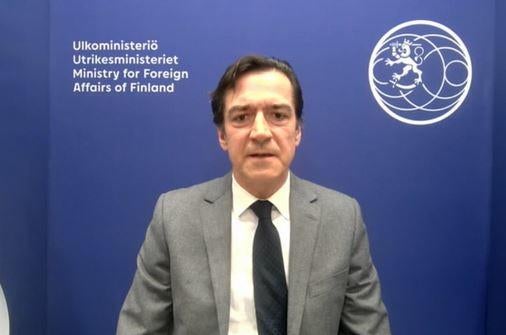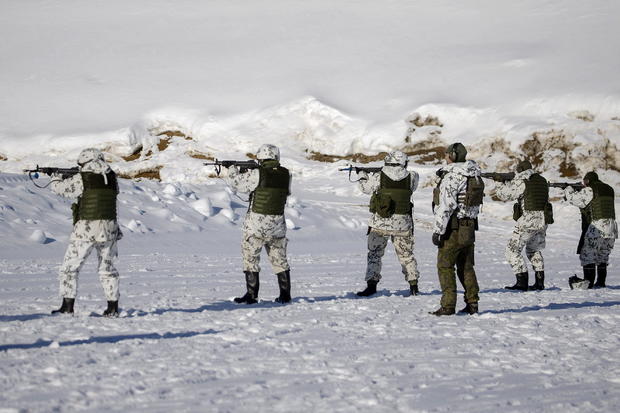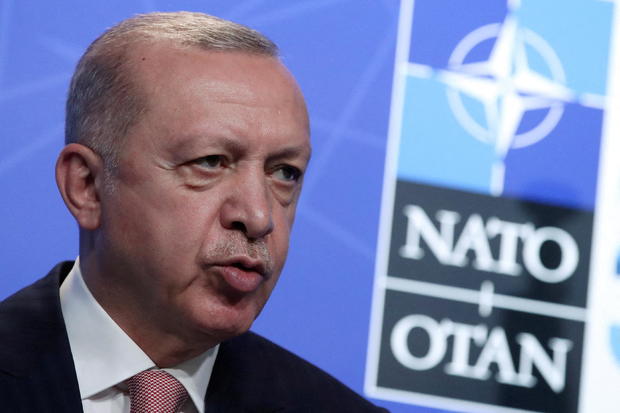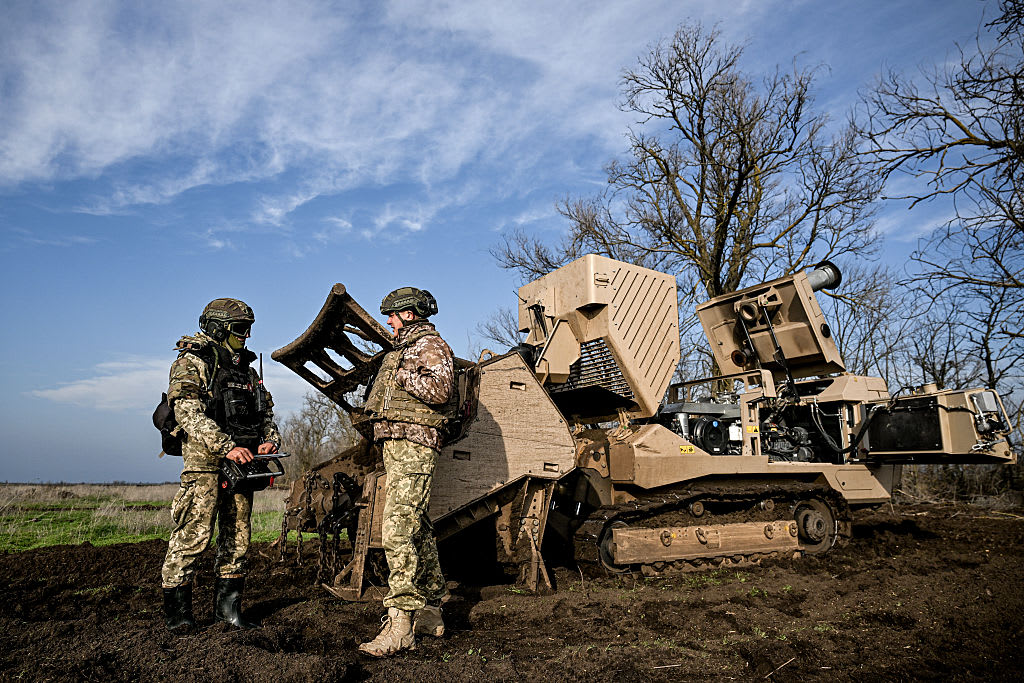Top Finland diplomat says his country could fend off Russian aggression with or without NATO
United Nations — Finland, along with Nordic neighbor Sweden, formally applied this week to join the U.S.-led NATO military alliance. Brushing off repeated threats from Russia, Finland's leaders scrapped decades of neutrality to file the application for membership in the bloc — a move backed solidly by the country's legislature and its public.
CBS News asked Finland's Under Secretary of State for Foreign and Security Policy Kai Sauer what has driven the dramatic shift in opinion, whether NATO member Turkey could block his country's bid, and if Finland is prepared to defend itself in the face of any hypothetical Russian aggression with or without NATO backup.
Finland's President Sauli Niinistö was joining his Swedish counterpart for a Thursday visit with President Joe Biden at the White House. The Finnish president's office said the leaders would "discuss, among other things, Finland's and Sweden's NATO membership, Russia's warfare in Ukraine and the relationship of Europe and the United States in the changed security situation."
You can read excerpts of CBS News' interview with Sauer below.
Under Secretary of State Kai Sauer: Why we arrived here [applying for NATO membership] is basically based on two events: One is Russia's request, or rather demand, made already in 2021, that NATO should not be enlarged. And this we felt is against our national sovereignty. The second argument, why Finland is now striving to join NATO is the Russian brutal aggression in Ukraine, which is of course a breach against international law. It also caused a lot of concern and a big public reaction in Finland. The support for NATO membership which in the past, for the Russian aggression in Ukraine, was 20% has spiked, and we are now looking at popular support around 70%.
CBS News correspondent Pamela Falk: Between the time that the actual accession to NATO comes and today, in other words, the period in which you're not protected by NATO or a member of NATO, the U.K. and the U.S. have offered guarantees that if anything happened in between, they would protect Finland. Is that your understanding?
Sauer: Well, let me take a step back and just share with you that Finland has the full capability to protect itself. We are actually bringing a number of qualities to the NATO table. We have a capable armed force, defense force. We have a very deep reserve - we are still maintaining a conscript system, which allows us to mobilize a significant number of personnel if needed, and we have the defense spirit… to defend our country if necessary. So, it's not that this is, this is a security vacuum. But nevertheless, of course, we have also partnerships like with the U.S., with the U.K., with our Nordic partners... to support, should there be any troubles during this time.
Falk: Could Finland stand up to a Russian attack?
Sauer: I think we have a credible deterrence. After the Cold War, many countries started to demobilize, especially in Europe. We didn't. We always maintained the credible defense, credible threshold. Actually, last December the decision was made — congratulations, Lockheed Martin — the decision was made to procure 64 F-35 fighters from the U.S. So, yes, we think we are capable of deterring any potential military activities… We are a net provider of stability, not the consumer, I think this will continue after the NATO membership.
On Turkey's potential NATO block
Any new state's accession to NATO requires unanimous approval by all 30 of the bloc's current members. The government of President Recep Tayyip Erdogan in Turkey, a current member of the bloc, has sent mixed signals about whether it will block Finland's and Sweden's bids.
U.S. Secretary of State Antony Blinken was to meet Turkey's foreign minister in New York on Wednesday to try to figure out exactly what concessions his country is seeking to back the Nordic countries' applications.
Erdogan and his foreign minister have chastised Finland and Sweden for their purported support of Kurdish separatist groups in Turkey, and for curbing some arms sales to the country.
But Sauer told CBS News he was optimistic that Ankara could be won over.
"We certainly hope so," he said. "We have a long, good relationship with Turkey, and these are processes which require time and a lot of dialogue."
His relative ease over Turkey's opposition has been echoed by other officials, including NATO Secretary-General Jens Stoltenberg, who said it was his understanding that Turkey aims not to keep Finland or Sweden out of the bloc, but rather to have its concerns addressed.






